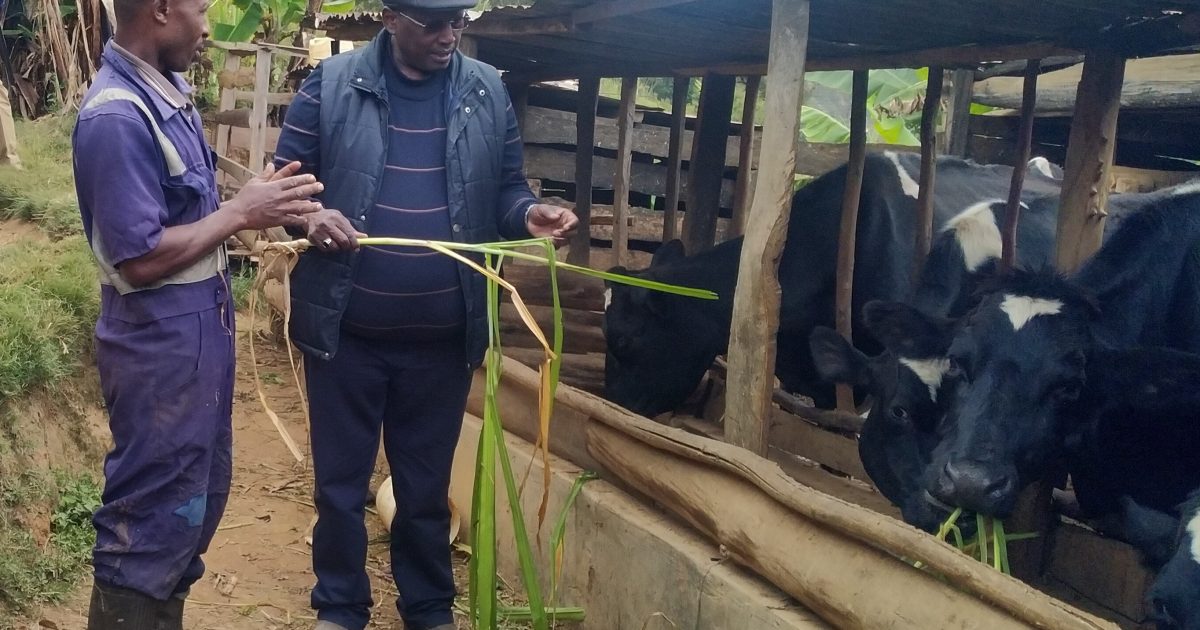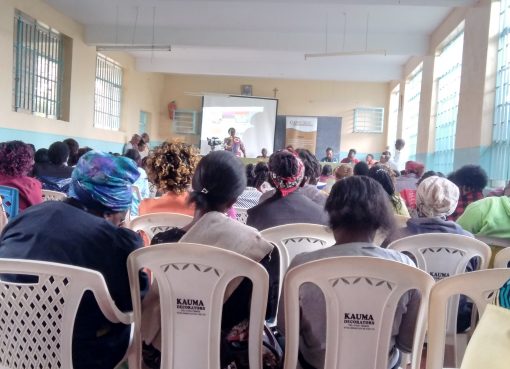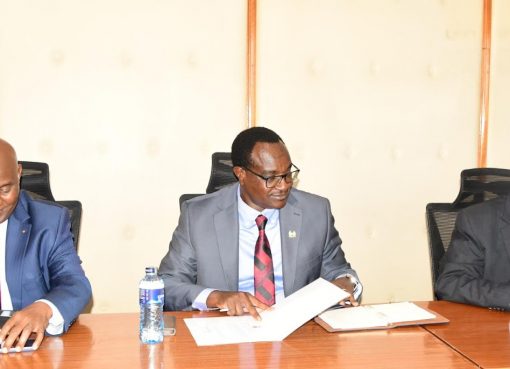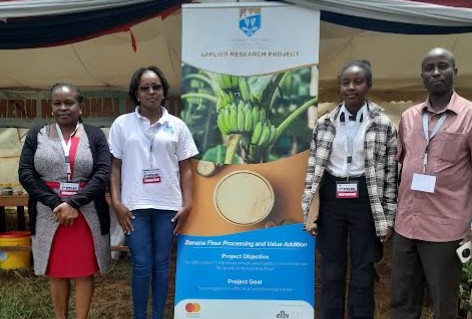At least 15,000 households in Taita Taveta, Nyandarua, and Nyeri have adapted to climate smart technologies that enable them get cheap clean energy in their households and bio-fertilizer for their farms.
Integrated agro-waste and bio-slurry improvement for climate change mitigation and improved crop and livestock production systems in Kenya targets to help farmers to maximize utilization of bio-digesters for clean cooking and soil health improvement
The farmers who have been trained on bio digesters and bio slurry, a liquid fertilizer used on crops, seeks to reduce costs of fuel in households almost by a half and further ensure food produced is clean and has higher yields and is healthy.
Through a government initiative that is supported by the World Bank, the Kenya Agricultural Livestock and Research Organization has been promoting and supporting farmers to utilize bio digesters for clean cooking and soil health improvement under Kenya Climate-Smart Agriculture Project (KCSAP) that has been running for the last three years.
Speaking in Werugha area, Taita Taveta County, KALRO Director General Dr. Eliud Kireger said climate change is real as it has continued to change as a result of activities brought about in agriculture that emits greenhouse gases that are released in the atmosphere and affects the ozone layer.
“We are assisting farmers to mitigate climate change by applying technologies that is use of bio digesters as source of energy and also as a source of bio fertilizer for crops,” he said.
Kireger noted that as a research organization they are working with farmers in three counties namely Nyeri, Nyandarua and Taita Taveta in order to open areas of agriculture productivity that is sustainable and clean through training them so that they do not only adopt but also be able to cut costs from fertilizer and in cooking.
“We are working with our partners the Pwani University to introduce technology that has been able to cut cost of fertilizer for the farmer by more than 50 percent and also energy costs in terms of lighting and cooking,” he noted.
The smart climate technology of using bio digester, the DG said will address problems of soil, have more food that is sustainable for a long time and if farmers adopt, can be able to reduce chemical fertilizer that is harmful to the soils, environment and also the waters.
“It is critical to ensure that the technologies provided to farmers are functional and well-suited for their energy and bio-fertilizer requirements. Apart from technology availability, concerted effort will be made to distribute knowledge and information gained from research activity,” Kireger said.

Joseph Wiresha Mwaghome from Werugha Ward, a beneficiary of the bio digester project, said since he put it in ,he has been able to save in terms of cutting down on cost of cooking as he no longer uses firewood or cooking gas.
“Once I got the bio gas, I no longer refill my gas cylinder which was expensive and I also do not use chemical fertilizer anymore because bio fertilizer is what I use for production of my potatoes,” he said.
Dr. David Kamau from KALRO’s Directorate of Natural Resources and Environment said that the project was to look for alternative energy sources in order not to degrade the lands through deforestation.
“We were looking at bio slurry since in each and every household, one percent of the population that keeps livestock has a bio digester and the bio slurry obtained from the bio digester can be an alternative source of bio fertilizer,” he said.
“We intend to look at how much we save once we use the bio slurry. We can do carbon foot printing and our focus is to have the lowest carbon emissions. Through the climate smart technologies, one can lower emissions from 393 grams of carbon dioxide equivalent to 163 carbon equivalent,” he said.
Kamau explained that the project engaged 19 farmers in the three counties and working with County officials and farmers groups, they were trained on the bio digesters and also the bio slurry.
“Bio slurry is more refined and gives better production. If we use it in for example the potatoes, we will get higher yield, enhanced productivity and better quality potatoes. Farmers are also excited about the bio slurry in their crops,” Kamau said.
He said that there are over 1500 farmers who have benefited from the bio digester and have been trained by the partner organizations namely the Kenya Bio Gas Company and Afrisol who were installing the bio digesters.
Beatrice Mkakisha Lugho a farmer also rom Werugha village and a beneficiary of KCSAP bio digester project in Taita Taveta County, expressed her happiness after witnessing the benefits of the biogas generated from the cow dung from her cow shed saying she no longer has to look for firewood for cooking.
The bio-digesters projected dubbed “Integrated agro-waste and bio-slurry improvement for climate change mitigation, and improved crop and livestock production systems in Kenya” is among 10 others being implemented by KALRO’s Directorate of Natural Resources and Environment under KSCAP.
By Wangari Ndirangu





